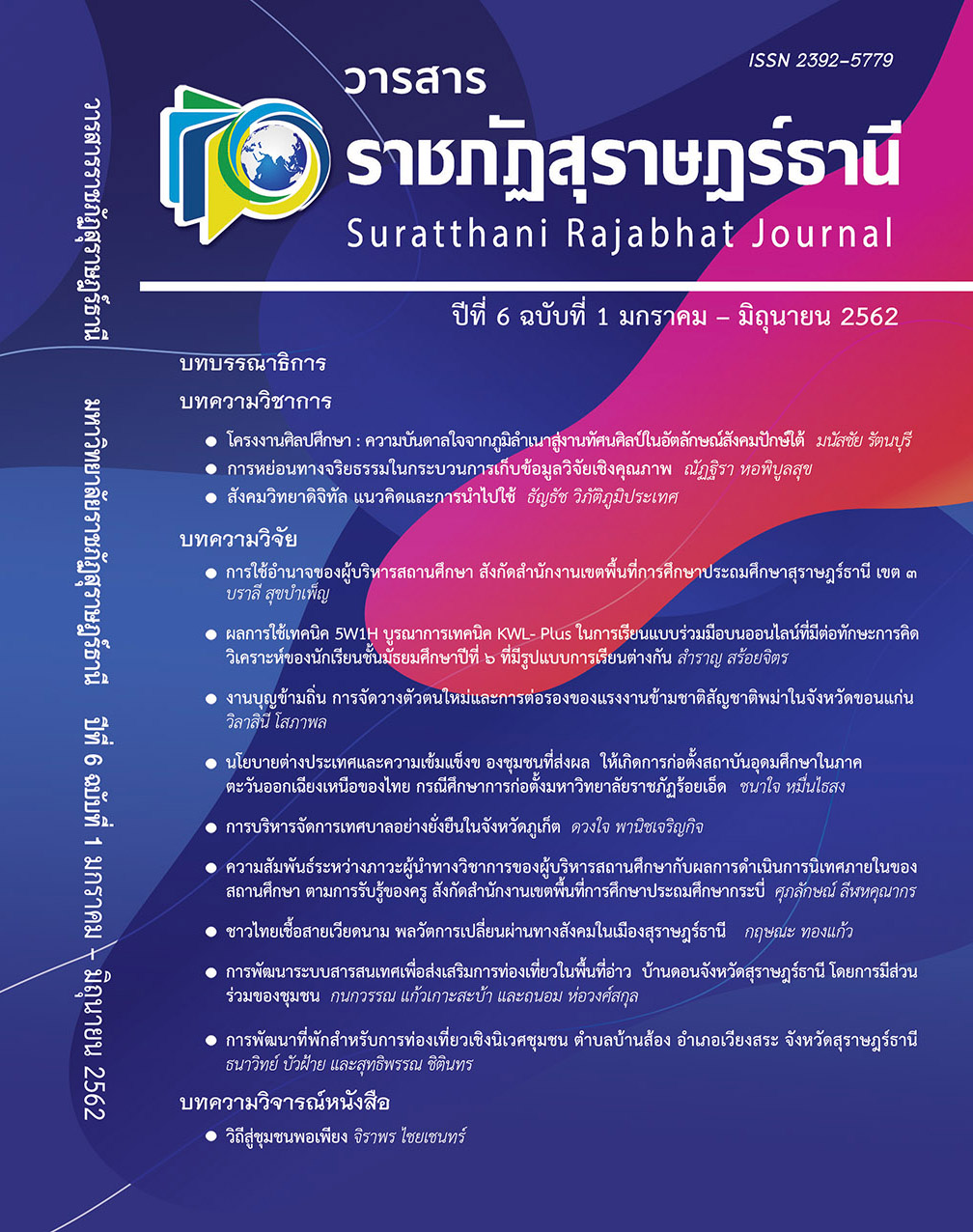Sustainable Management of Municipality in Phuket
Main Article Content
Abstract
The Sustainable Management of Municipality in Phuket refers to municipal management that is in line with government policies. To study impacts from municipal management in Phuket province and from sustainable management of municipality, this research studied 12 municipalities via interviews with local politicians/local civil servants and focus-group discussions with municipal officials and local people. There were 10 to 15 participants from each studied municipality. Moreover, there were questionnaires filled in by 272 persons. Of these respondents, 157 were municipal officials and 115 were ordinary people. Findings show municipal management in Phuket province has affected eight areas of management and public services namely: 1) education innovations; 2) public-health innovations; 3) safety innovations; 4) green innovations; 5) cultural-conservation innovations; 6) political and participation innovations; 7) local fiscal innovations; and 8) management innovations. Moreover, municipal management has affected four external areas namely: 1) local politics; 2) public participation by local people; 3) public services; and 4) relationships between communities and local leaders. For example, there is a lack of local people’s participation in decision-making processes when it comes to the management of public areas such as beach, sea, and national parks; environmental works; local resources, and the inadequate infrastructure and educational services.
For the Sustainable Management of Municipality in Phuket, executives of local administrative bodies have embraced five principles: 1) Good leadership such as being transparent; 2) Public participation such as organizing constructive activities, promoting good ties within their organization and beyond, and according importance to engaging people in local development; 3) Well-developed management system with formulation of policies/plans, and integration of works that comply with government policies and suits local context; 4) Promotion of unity via promoting local people’s love for their hometown and mutual support, etc.; and 5) Good governance covering morality, transparency, engagement, and responsibility towards values crucial to achieving successes for local areas.
Article Details
References
วีระศักดิ์ เครือเทพ. (2548). ข้อค้นพบนวัตกรรมท้องถิ่นไทย. วารสารประชาคมวิจัย, 39(1)
จุฬาลงกรณ์มหาวิทยาลัย.
สมคิด เลิศไพฑูรย์ และคณะ (2550). ทิศทางการปกครองท้องถิ่นไทยในรัฐธรรมนูญฉบับใหม่ (พิมพ์ครั้งที่ 1). กรุงเทพฯ : เสมาธรรม.
สุเมธ แสงนิ่มนวล (2556). ต้นแบบการบริหารจัดการขององค์กรปกครองส่วนท้องถิ่น ในประเทศไทย, สถาบันพระปกเกล้า.
John Stuart Mill. (1975). Three Essays: On Liberty , Representative Government, and the Subjection of Women. Oxford : Oxford University Press.


